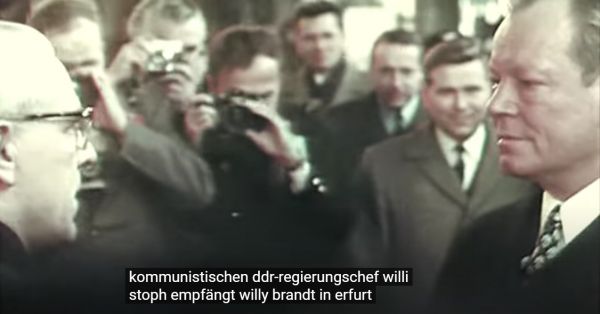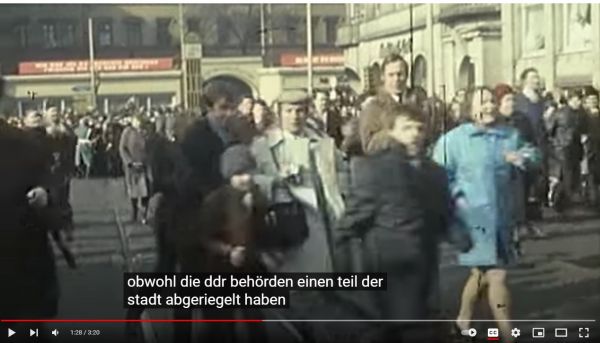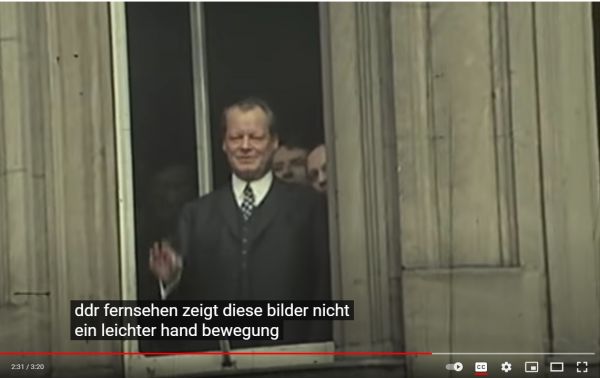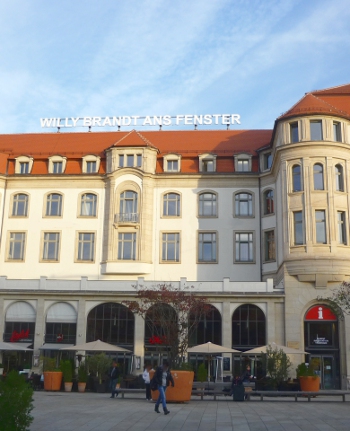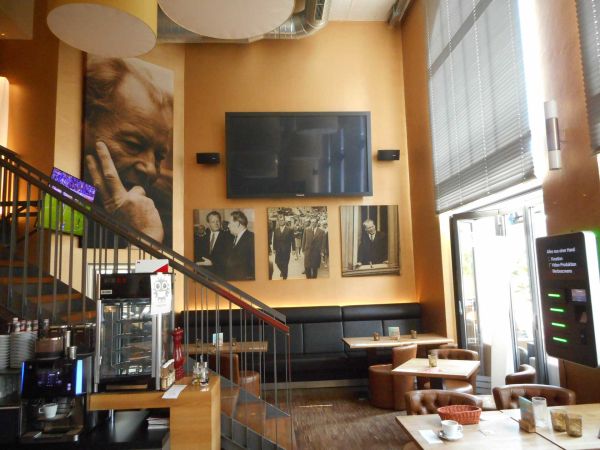Willy Brandt in Erfurt
Willy Brandt in Erfurt
My Great-Great-Grandfather Johann Zacharias Siegling grew up in Erfurt, Germany, and emigrated to Charleston, South Carolina in 1820. That was all I knew about the man until 1993, when my mother found a shoe-box with his personal correspondence in it. She had been sorting through my grandmother's personal effects, after her death. Great-great-grandfather emigrated in stages from Germany, first to Paris, from there to Amsterdam, and finally to the Lincoln Inn Fields section of London before pushing off for American in about 1818.
The shoe-box contained about 50 letters dating from 1812 to 1857, most of them in German. I speak German, so Mother asked me to translate them and to make a copy for her. The many references to historical events, the descriptions of daily life in Erfurt, and the struggle to make a living during the hard years after the French occupation interested me, so I knew I had to visit Erfurt, as soon as I could get free of my other obligations.
Like other cities in the former East Germany, Erfurt had to recover from fifty years of Soviet rule, which ruined its economy and slowed its recovery from the damage caused by World War II. For the first fifteen years of its existence, East Germany, the Soviet Union. allowed its satellite nations little contact with their Western neighbors in NATO. Then, in 1970, the Chancellor of West Germany Willy Brandt made contact with East German leaders and suggested a rapprochement. They agreed on a meeting at the Erfurter Hof hotel in Erfurt as the location for the meeting, That must have surprised German-watchers, who would have expected a meeting to take place in Berlin, the presumed capital of a united Germany.
The meeting took place on 19 March 1970 at the old Erfurter Hof hotel, directly across from the railway station, West German Chancellor Brandt conferred with Politburo member Willi Stoph about relaxing East-West tensions. This extraordinary event attracted hordes of journalists from across Germany. Brandt and Stoph found themselves surrounded by photographers, both Western and Eastern, both local and national. No one but Brandt, who had fought as a partisan against the Nazis during World War II, had the credentials to pull it off. The serene dignity of Brandt wowed everyone!
Images courtesy of YouTube and Zeitzeugen-portal
But the World was in for a surprise. Brandt's visit brought thousands of Erfurters to the Erfurter Hof. They broke through the police-cordon, crowded the plaza, and cheered enthusiastically for the West German Chancellor. Seeing the cheering crowds at the now-familiar landmarks brought me close to tears. Erfurters took such a huge risk breaking through the line of police officers. Their Soviet leaders did not tolerate much spontaneity.
Brandt stood nobly in the window of the Erfurter Hof to gaze caringly at the crowd who struggled to get closer to him, right under the window. He waved his hand in a friendly downward movement to calm down the ecstatic crowd, and not risk disorder and repression by the police. For the Soviets, watching a mob of people cheer a Western leader must have been unsettling. Not too surprisingly, East German media did not report anything about his visit.
Modern-day Erfurters revere the memory of Willy Brandt, for his courage in reaching out to them. They changed the name of the Erfurter Hof to the "Willy Brandt ans Fenster". "Willy Brandt standing in the Window."
The restaurant on the ground floor of the Willy Brandt ans Fenster is the Willy B. Its walls are decorated with giant photographs of Brandt's career.

